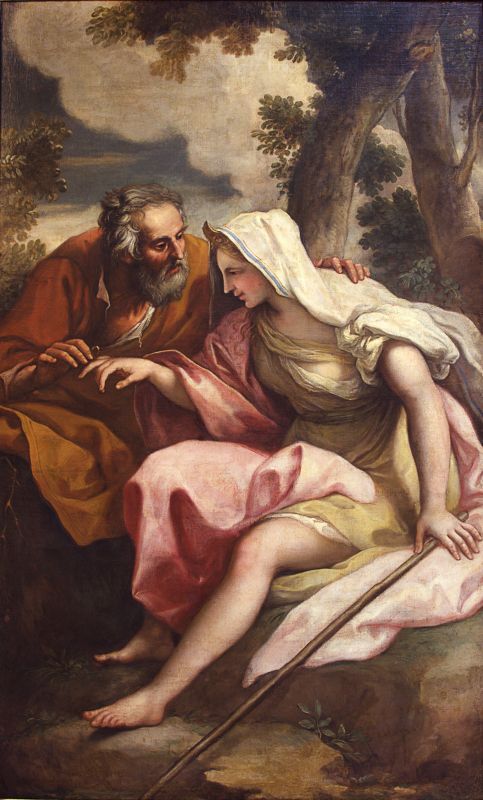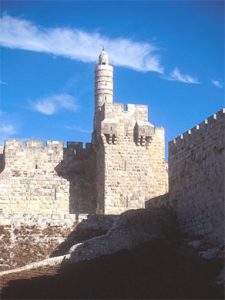by Lois Tverberg
A woman of valor, who can find? Her preciousness is far beyond jewels. Proverbs. 31:10
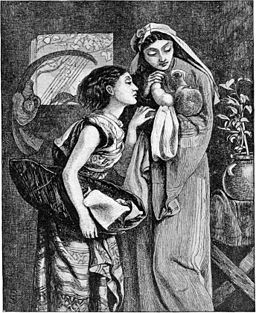 What can the women of today learn from the Bible’s words for women from within its cultural perspective? How much should we see as specific to its world, and how much is timeless? This second question is difficult, with a wide variation of opinions. Nevertheless, understanding more about what the biblical world of women was like will allow us to better grasp what the Bible is saying for women today.
What can the women of today learn from the Bible’s words for women from within its cultural perspective? How much should we see as specific to its world, and how much is timeless? This second question is difficult, with a wide variation of opinions. Nevertheless, understanding more about what the biblical world of women was like will allow us to better grasp what the Bible is saying for women today.
For instance, just looking at the passage above, most recognize it as about the “virtuous wife.” How can it be translated as “woman” instead of “wife”? Because the word in Hebrew for wife is ishah, (ee-SHAH) which does mean “woman” as well as “wife.” This is because in biblical times, it was assumed that every woman would marry. It could really not be any other way, because in that time, no one could survive on his or her own. Large families were needed to raise enough food to survive and provide protection from enemies. In illness or an emergency you always turned to your family. To not marry was unthinkable, for both men and women.
 The second word, translated as “virtuous” or “valor” is hiel, (hi-EEL) and it is often used to describe warriors, like “David’s mighty men of valor” – his elite fighting team (2 Samuel 17:10). It can mean strength, courage, power, or moral virtue. To be a woman of hiel is great indeed!
The second word, translated as “virtuous” or “valor” is hiel, (hi-EEL) and it is often used to describe warriors, like “David’s mighty men of valor” – his elite fighting team (2 Samuel 17:10). It can mean strength, courage, power, or moral virtue. To be a woman of hiel is great indeed!
If the idea that a woman can have valor surprises you, you might also not have noticed that women made several contributions to the Scriptures. Miriam, Deborah, Hannah and Mary all composed songs that are recorded in the biblical text. And, believe it or not, Proverbs 31 was actually composed by a woman. The chapter starts with the note, “The words of King Lemuel, an oracle that his mother taught him.”
Say to Wisdom, You are My Sister
How much precedent was there for women as teachers in the Bible? Well, the woman of valor in Proverbs 31 was praised because “She opens her mouth with wisdom, and the teaching (torah, literally, or “law”) of kindness (hesed) is on her tongue.” (vs. 26) A mother is called to be a teacher of her family. Earlier in Proverbs it also tells sons to learn from their mothers as well as their fathers:
Hear, my son, your father’s instruction,
and forsake not your mother’s teaching,
for they are a graceful garland for your head and pendants for your neck. vs 1:8-9
In fact, a good portion of the book of Proverbs is narrated by the voice of a woman. Wisdom itself is personified as a woman who calls to young men in the streets and invites them to listen to her wise counsel. She is the one speaking for much of Proverbs 1-3 and chapters 8-9.
Proverbs provides quite a bit of precedent for women as teachers, even within their traditional roles of wives, mothers and sisters. We should consider the advice of Proverbs 7:4,
“Say to wisdom, you are my sister
and call insight your intimate friend,
to keep you from the forbidden woman,
from the adulteress with her smooth words.”
In some Christian circles, young men are taught to be wary of women and sexual temptation. What if instead of only focusing on viewing them sexually, they learned to say, “Wisdom, you are my sister”? Then they would be able to relate to women as sisters and aunts who may have much sound wisdom to share.
Images: John Heseltine & Pam Masco, Jonathan Chng on Unsplash,

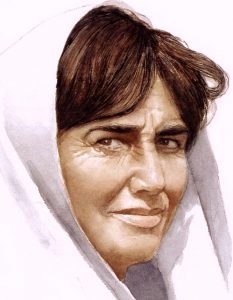
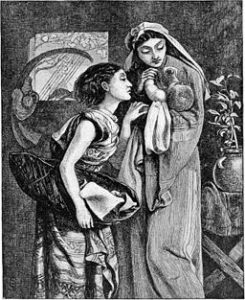 In the first few chapters of Exodus, women play a major role. Pharaoh tells the midwives Shiprah and Puah to kill the newborn boys but let the girls live. His assumption was that while men posed a threat, women would be easily assimilated into Egyptian culture and exploited as domestic and sexual slaves. We also see hints of this in Abraham’s time, when he tells Sarah that the Egyptians would kill him and take her. (Genesis 12:12)
In the first few chapters of Exodus, women play a major role. Pharaoh tells the midwives Shiprah and Puah to kill the newborn boys but let the girls live. His assumption was that while men posed a threat, women would be easily assimilated into Egyptian culture and exploited as domestic and sexual slaves. We also see hints of this in Abraham’s time, when he tells Sarah that the Egyptians would kill him and take her. (Genesis 12:12)